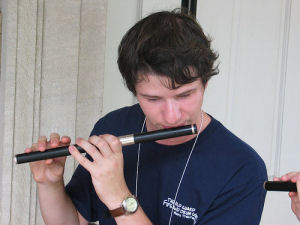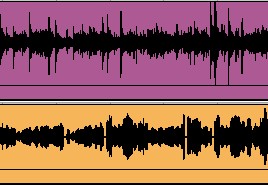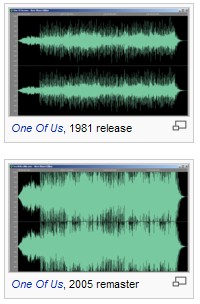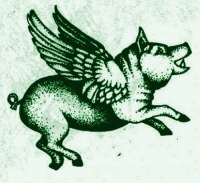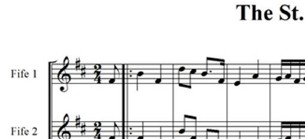 author profile
author profile
Author Profile: Dan Moylan
Composer: Dan Moylan
Music: The Clueless Fifer
|
Dan has been diagnosed with a serious addiction to fife and drum. On his first encounter in 1948, a fellow clarinetist pulled a fife from his sleeve, and let him play a scale (low octave, of course) — a new world, endless possibilities! he bought one of his own on his next visit home from college, along with a 1928 edition of the American Veteran Fifer. He learned the paradiddle from a fellow co-op student that same year and was extremely envious of folk who could drum. Despite the interest, Dan never found a fife and drum corps to join until 1973, when he joined the Sudbury Ancients with two of his sons, under pressure from his wife (Oh, Br’er Fox, please don’t throw me into the briar patch!) The ensuing years were busy with Bicentennial reenactments, culminating in the trip to Yorktown in 1981. In 1977, he undertook to learn the drum, to encourage his youngest son, who was just then taking up, but not practicing, Dan practiced one to two hours every day, starting at 0630, much to the delight of his family. He concentrated on the basic rudiments, and learned from Strube, whose up/down notation he still employs (with modifications). When Patrick Arnow, an accomplished Connecticut drummer, joined the corps in 1989, Dan returned to the fife, but later cycled back to the snare, then to the barrel, and has finally returned in his declining years to the fife. He is an ardent supporter of The Company, (introduced to it by Sudbury Faire announcer Russ Kirby) and has served as Executive Officer, and currently as Trustee, and editor of the Ancient Times — pro tem. Every now and again, he tries his hand at writing a tune. As to the title of this one, as most of our drummers would say, “Aren’t they all?” I would also like to point out that Dan is partially responsible for making space in the Ancient Times for the product of this contest. Thanks Dan for the support! |
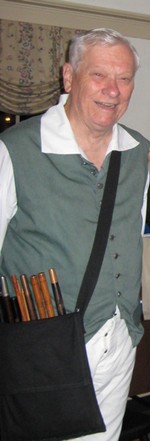
|



